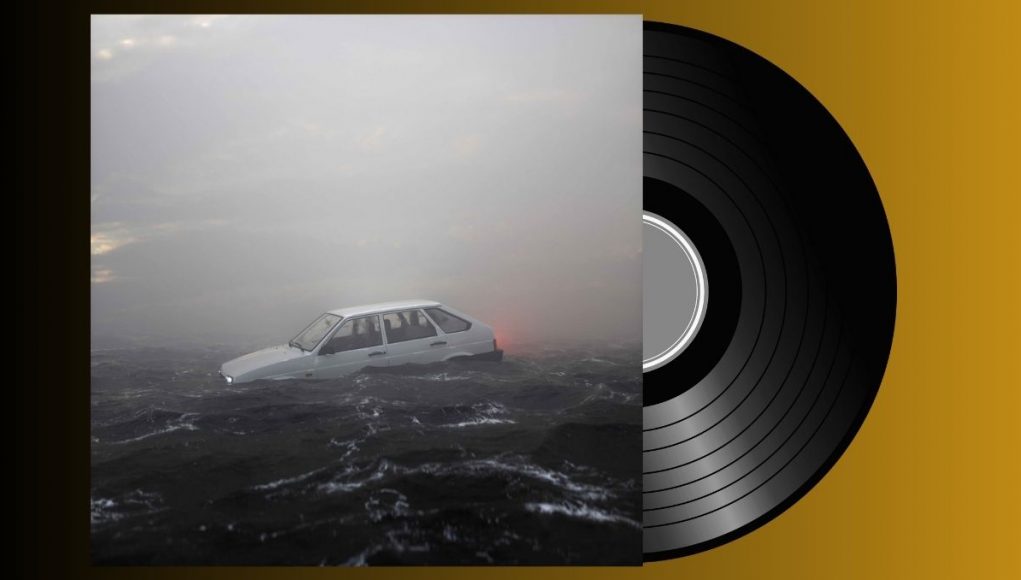Synecdoche Montauk, the project of London-based, Moscow-born Savva Rozanov, has been pushing music forward for ten years since the release of its debut album „Внеклассное чтение“ („Extracurricular Reading“). Subsequent releases, „Лебединое мясо“ („Swan Meat“), „MMXVII“, and „MMXVIII“, established Synecdoche Montauk as one of the most impressive Russian experimental pop acts. The sound of the one-person band is constantly evolving and definitely could be named „contemporary pop“: it is always up to date and resonates with the present. Rozanov himself prefers to call his genre „Pierrot-core“. His position as co-founder and head composer of the international production studio Monoleak allows him to be precise with the sound of his songs and fill it with details. The heavily detailed world of Synecdoche Montauk is constantly balancing between allusions to Russian life and signs of modernity.
To some extent, the word „acume“, that named an album, reflects that contrast: it comes from combining the Italian „acumen“ (discernment) and Romanian „acum“ (now). That name came to Rozanov as an insight, and the process of writing and recording these songs was full of them too. Most of the music was written amid the pandemic and, as Rozanov points out, in a relatively quick time: despite the material’s toughness, you can still feel the lightness underneath. He says you can feel it deep down there, hearing the gentle songs reminding him of Soviet variety; an orchestra’s sampled but lush sound and Uliana Volkova’s cello affirms that. We could also catch that old and almost forgotten feeling in the acoustic versions of the songs. But, with all its modernisation, they are losing naivety and sentimentality on „Acume“, giving space to the more sour emotion, more suitable for our times.
Rozanov sent the album to the mastering engineer at the end of this February, just two days before the armed conflict between Russia and Ukraine developed into a full-scale war. For many Russian artists, Rozanov included, that was a point to consider the appropriateness of his creative input, and he decided to let his songs out only after some reflections. Now he believes these songs somehow resonate with the present, hence the album’s name. There are no songs about the war (even that word appears here in a completely different context), no lines about exile or catastrophe. Instead, „Acume“ is full of observations about the past that help to understand the current world.
Rozanov explicitly emphasises the difference between him, the mere bystander, and his lyrical hero, the subject of his stories. As in his previous works, Rozanov is returning to childhood themes, but now he dares to see the traumatic effect of the events on his lyrical hero: for example, bullying in „Лес рук“ („Forest of Hands“) and after-school fight in „Драка“ („Brawl“). Moreover, he again makes allusions to Russian life, even in the tracks‘ naming, specifically, „Сибирская шавасана“ („Siberian Savasana“) and „Музыка для небесной девятки“ („Music for the Heavenly Lada Samara“). Some of the songs echo the memories of the past with today’s events: in the forceful opener „KG“ („КГ“) and previously released single „Незримый вес“ („Hidden Weight“), we could see the lyrical hero more matured but still struggling with the existential problems.
„Acume“, full of melancholy observations, ends on a more hopeful note: „Бичфейс“ („Bitch Face“) is a great love song with a warm feeling behind it. As Rozanov says about the track, it is an „exit that differs from the dark tones of the record“. The same applies to the music: Danila Nikitin’s saxophone adds a much-needed heartening touch to the album’s ending.
The rest of the album is full of cold, but not distant, sound, natural to Synecdoche Montauk. Sometimes it is inspired by hip-hop, as we can hear in the compelling and groovy „Music for the Heavenly Lada Samara.“ Sometimes it reminds us of hyper pop, as in the playful „Invisible Weight“. Sometimes it takes a more experimental turn, as in the most complex song in the album, „Brawl“, with its attention to the power of silence and whispering.
Here we can see the evolution of Synecdoche Montauk: it is full of small details, little reminiscences to pop music and Rozanov’s previous works. On „Acume“, we could hear rare electronic keyboards such as Optigan and Casio SK-1, and a well-known quote to the 00s R&B listeners, played on Roland M-DC1. The former is the lo-fi beginning of the high-end track. The latter is his successful attempt to combine the incompatible, which Rozanov names as the main point of his artistic technique. Warm cassette sound is an entry point to most songs, serving as an entrance to the memory. But „Acume“ is not a nostalgic album; instead, the memory becomes a harsh, stark and even bitter reality.








